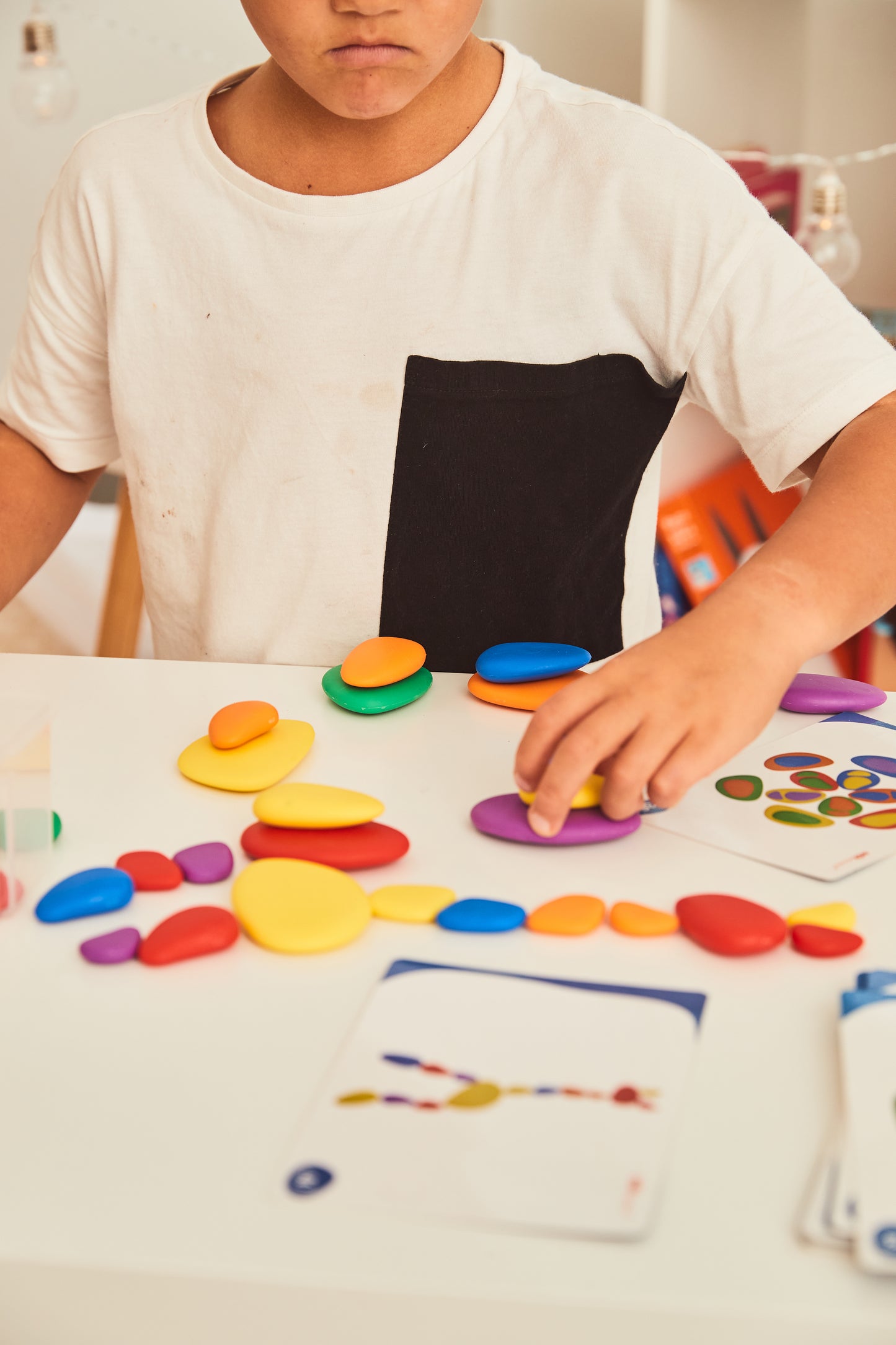
We often find ourselves wondering how to prepare our children to navigate an ever-changing world. More than teaching facts or rote memorisation, it’s essential to nurture thinking skills that equip children for creative problem-solving, adaptability, and confidence in their ideas. At Edx Education, we champion a play-based learning philosophy that encourages children to explore, experiment, and learn through play. By introducing toys that foster various types of thinking—convergent, divergent, and lateral—we can help our little ones become resilient, adaptable thinkers who approach challenges with curiosity and confidence.
Understanding the Three Thinking Skills
-
Convergent Thinking:
Convergent thinking is the process of coming to a single, correct solution to a problem. Often associated with logic and reasoning, this type of thinking helps children focus on what’s factual and concrete, such as mathematical answers or specific tasks. In traditional schooling, much emphasis is placed on convergent thinking, where children are often taught to find the “right answer.” This skill is essential for tasks that require precision and focus, such as solving maths problems or following a set of instructions. However, it’s only one part of the bigger thinking puzzle.
-
Divergent Thinking:
Divergent thinking is the opposite of convergent thinking. Rather than narrowing down to one correct answer, divergent thinking encourages children to generate multiple solutions, think creatively, and explore all possibilities. This type of thinking is at the heart of creativity and innovation, as it invites children to think “outside the box” and dream up unique ideas. When children are encouraged to think divergently, they learn to view problems as opportunities for exploration, often leading to new and unexpected ideas.
-
Lateral Thinking:
Lateral thinking combines elements of both convergent and divergent thinking but focuses on rethinking problems from new angles. It’s a way of approaching challenges through indirect or unusual paths, often by making connections between seemingly unrelated ideas. Lateral thinking encourages flexibility and adaptability, which are crucial for navigating life’s complexities. Children who develop lateral thinking skills learn to adapt to changing circumstances, shift perspectives, and approach situations with fresh eyes.
Why These Thinking Skills Matter
Developing these three types of thinking prepares children to handle various challenges and opens doors to creativity and resilience. By helping children cultivate convergent, divergent, and lateral thinking, we’re giving them tools to approach different situations with confidence and flexibility. Whether they’re solving a maths problem, creating a piece of art, or navigating social dynamics, these thinking skills empower them to tackle each situation effectively.
How to Foster Each Thinking Skill Through Play with Edx Education Toys
Developing Convergent Thinking:
Structured toys, such as Number Rods to Go or the Hundred Board Activity Set, are ideal for fostering convergent thinking. These toys encourage children to focus on precision and accuracy as they work to solve specific problems, such as counting, sequencing, and recognising patterns. These activities engage children in finding clear solutions, whether it’s by matching number rods to quantities or completing a number sequence. They reinforce logical thinking and concentration, which are essential components of convergent thinking.
Encouraging Divergent Thinking:
Open-ended toys like Rainbow Pebbles® and Pattern Blocks offer endless possibilities for exploration, making them perfect tools for encouraging divergent thinking. These toys can be used in countless ways—children can stack, arrange, create patterns, or invent new shapes. When children play without strict instructions, they’re free to let their imaginations run wild, experimenting with different ideas and developing a sense of creative independence. For example, creating unique designs with Rainbow Pebbles® helps children see the beauty in creating something new, fostering a sense of accomplishment that builds confidence.
Some toys are especially effective for lateral thinking because they allow children to explore different perspectives and unexpected solutions. Linking Cubes Reflection Set and MyGears® are excellent for this purpose, as they invite children to experiment and build in imaginative ways. With these toys, children can make connections between shapes, movements, and patterns, prompting them to think in unexpected directions. Linking Cubes encourage children to build and reconstruct, finding creative solutions to create new forms, while MyGears® introduces them to the concept of cause and effect, inspiring them to explore mechanical connections and problem-solving from different angles.
Bringing It All Together with the Play, Learn & Create Podcast
In addition to hands-on play, our podcast Play, Learn & Create with Edx Education offers valuable insights for parents and caregivers on the power of play-based learning and practical ways to develop essential skills. Each episode delves into various topics related to child development, providing tips and ideas for nurturing thinking skills at home. Listening to the podcast can give you ideas on how to guide your child’s playtime with intention, fostering their development in ways that feel natural and enjoyable.
The Power of Play-Based Learning
At Edx Education, we believe that play is one of the most powerful tools for learning. By introducing children to toys and activities that promote convergent, divergent, and lateral thinking, we’re setting the stage for lifelong learning and adaptability. As parents and caregivers, we can nurture these skills through thoughtful play, helping our children build a strong foundation for the future. With Edx Education’s range of toys, resources, and the Play, Learn & Create podcast, you have the tools to inspire creative, flexible, and confident thinkers—one playful moment at a time.
So, why not dive into the world of play-based learning and help your child explore the incredible power of their mind?
